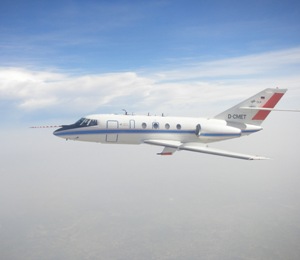How Africa's shifting monsoons could affect weather across the world
Release Date 02 December 2013

University of Reading climate scientists are helping the people of sub-Saharan Africa as part of a major new project to explore links between climate, health, urbanisation and agriculture.
West Africa's population is growing rapidly, but it is uniquely exposed to complex meteorology, an uncertain climate future and rapidly increasing air pollution.
Over the next 5 years, the EU project DACCIWA, which begins this month, will make extensive measurements in the region, will develop new weather and climate models and will help to inform policies for the region. Sixteen partners - including from the University of Reading's world-renowned Department of Meteorology - from six countries will investigate the whole scientific chain from natural and anthropogenic emissions to impacts on climate, ecosystems and health.
DACCIWA began on 1 December 2013 with funding of €8.75million (approximately £7.2m).
With the largest population growth on Earth, massive urbanisation and rapid economic growth, southern West Africa is changing fast. The rapidly growing cities are mostly located along the coast, with agricultural and forested areas immediately inland. Emissions from cities have been increasing explosively, due to, amongst other things, increased road traffic using often out-dated technology. Whilst the increase of fine particles has led to an enhancement of respiratory diseases within the cities, ozone produced downwind of the cities is likely to impact the health of the rural population and reduce agricultural production.
According to the World Bank[1], sub-Saharan Africa will be the region that suffers the most from climate change. Massive conversion of natural forests into agricultural land also affects the climate locally. In addition, the combination of anthropogenic emissions from the burning of fossil fuels and biomass, and the natural emissions from plants can lead to the formation of solid and liquid aerosol particles suspended in the air. These can affect the formation of clouds - creating a largely unquantified regional climate factor.
"Vast populations are dependent upon the West Africa monsoon rains," said Professor Richard Allan, professor of climate science at the University of Reading, who is involved in the project.
"We also know that the West Africa monsoon influences and is influenced by weather patterns across large swathes of our planet.
"It is a complex, integral component of Earth's climate. This is why we are studying in detail how clouds, rainfall and atmospheric properties are interconnected, combining detailed simulations with measurements taken on the ground, in the air and from satellite. The results from the project will support policy making decisions and improve our ability to make better predictions of the Africa monsoon."
Due to a lack of observations and previous studies, our current understanding of the meteorological, physical, and chemical processes occurring in this region is poor. Other regions would therefore benefit from a better understanding of the West African region.
Prof Allan is one of several Reading academics involved with the new interdisciplinary project DACCIWA (Dynamics-aerosol-chemistry-cloud interactions in West Africa) that began on 1 December 2013 and will run until 2018.
ENDS
For more information, please contact Pete Castle at the University of Reading press office on 0118 378 7391 or p.castle@reading.ac.uk.
Notes to editors:
[1] The World Bank report on avoiding climate change is available here >>>
The University of Reading is ranked among the top 1% of universities globally (THE World University Rankings 2014). Its Department of Meteorology is internationally renowned for its excellent teaching and research in atmospheric, oceanic and climate science. The University of Reading is world-renowned for its pioneering research on weather, climate and earth observation and is also home to the Walker Institute for Climate System Research.
The EU funds this project as part of its 7th Framework Programme. DACCIWA involves 16 scientific organisations from Germany, France, Switzerland, the UK, Ghana and Nigeria and partner teams in Ivory Coast and Benin. The scientific emphasis is on the investigation of the interaction of clouds and aerosols.
Through DACCIWA, researchers will collect a wealth of new observations through a comprehensive field campaign that involves research aircrafts, ground-based instrumentation and satellites. The resulting dataset together with numerous modelling activities will enable a better understanding of all relevant meteorological, physical and chemical processes from emissions through to cloud formation, radiation, and precipitation to finally the regional circulation, climate and health. The aim is to develop a new generation of weather and climate models and to better predict monsoon rains and climate change.
Together with two other consortia that look at the role of aerosol in the climate system, DACCIWA will form a European research cluster ‘Aerosols and Climate'. The cluster will be inaugurated at a kick-off event in the Albert Einstein Science Park on the Telegrafenberg in Potsdam, Germany, on 5th December 2013 from 9am. Information on the research cluster and the kick-off event are available at http://www.aerosols-climate.org.